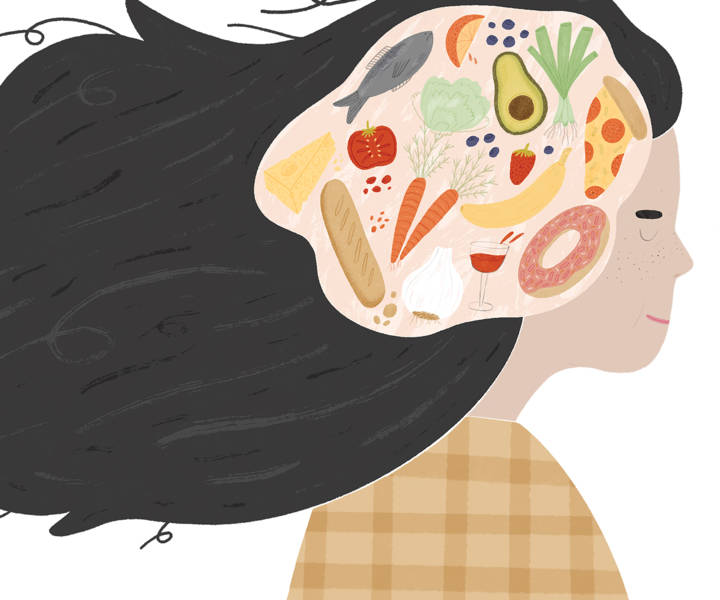Health
10 ways to practise mindful eating
by Maureen Rice

Diets don’t work, social media can’t be trusted, and the ‘rules’ change all the time. How can we detox from diet culture and find a happier, healthier, more peaceful way to eat? According to a growing body of research, mindful eating could be the answer
Helen Egan is a researcher in eating behaviours at Birmingham City University, and describes mindful eating as ‘a way to develop awareness and acceptance about what and how we eat’. It has been shown to help support a healthy BMI, reduce the intake of high-density foods (such as takeaways and processed foods), help us connect with how we really want to eat for our unique body and mind, and develop more positive feelings about food and our bodies. We asked Dr Egan for her tips to get started:
1. Start practising mindful eating with a food that you enjoy – make it a pleasurable experience.
2. Begin by eating with focus. Eliminate distractions, put away the phone, switch off the screens or put down the book. You can eat mindfully with distractions such as the TV, but it takes more practise.
3. Before you eat, ask yourself how hungry you are on a scale of one to 10. If those numbers are always high, perhaps you need to eat more, eat earlier, or eat foods you find more satisfying. If they’re usually low, perhaps you need more sleep, more exercise or fresh air, or less stress – things that may be affecting your appetite. Or perhaps you are eating more than you really want to.
4. Think about choosing food that supports both your body and mind. At times you will want the chocolate, and that is completely fine. Make a conscious decision to eat it, enjoy eating it, and do not beat yourself up for eating it.
5. Recognise what you think about foods, for example: ‘I like this food’, ‘I don’t like this food’ or ‘I don’t care either way about this food’. Knowing how we really think and feel can help with self-regulating our eating behaviours.
6. Don’t give yourself a hard time about your food likes and dislikes. Don’t judge yourself.
7. Pay attention and use all your senses when you eat, using these three prompts: What does it look like? What does it taste like? What is the texture?
8. Accept that there is no right or wrong way to eat. How you eat is unique to you.
9. Your mind will wander when you eat. You might think about your to-do list or other distractions – this is normal. Don’t worry about it. Remember, you are practising a more accepting, non-judgemental way of being with yourself. Notice that this has happened, and return your mind to the sensory experience of the food.
10. Before you eat, ask yourself: ‘What do I really need?’ If you are hungry, eat. But if you are tired, stressed, lonely or want to reward yourself, ask yourself if there are other ways you can meet those needs. Do you really need rest, comfort and connection rather than food?













